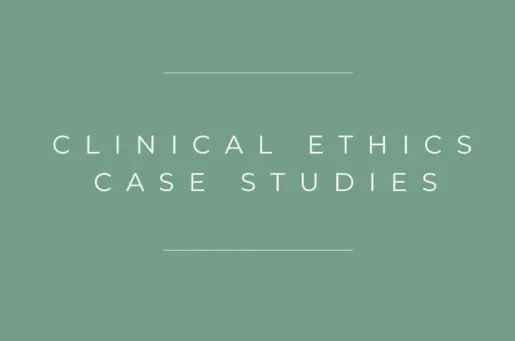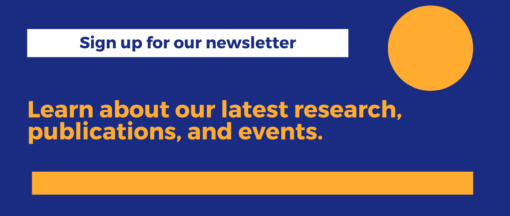Bioethics Forum Essay
Better Safe than Sorry? Tylenol, Pregnancy, and Ethics
“Don’t take Tylenol,” President Trump told pregnant women last week. Despite his claims, there is no evidence that Tylenol taken during pregnancy increases the risk of autism, ADHD, or intellectual disability in children. Misinterpretation of scientific evidence is not just an issue of reporting, but one of ethics. Bioethicists must call out this misleading, fear-based rhetoric.
Deciphering whether any medication causes harm to fetuses is complicated. Part of the challenge is a longstanding reluctance to conduct research during pregnancy. The 2018 revision to the Common Rule removed pregnant women from the list of those considered a “vulnerable population,” and leading organizations have called on the scientific community to address evidence gaps through responsible inclusion of pregnant women in biomedical research. But fewer than 1% of clinical drug trials of women ages 18 to 45 enroll pregnant participants.
Remarkably, despite these challenges, Tylenol is among the few medications for which we have a good evidence base. This is not because randomized trials have been done––but rather because Tylenol use has become so widespread that scientists have robust epidemiologic data to discern whether there is any risk. Early studies suggesting association between Tylenol use in pregnancy and autism were plagued by confounding factors, small sample size, and reporting that incorrectly implicated an association.
The American College of Obstetricians and Gynecologists has emphasized that the two highest quality studies––including one published in JAMA last year––indicated “no significant associations between use of acetaminophen during pregnancy and children’s risk of autism, ADHD, or intellectual disability.” ACOG affirms that acetaminophen remains the safe, trusted option for pain relief and fever during pregnancy.
Given this solid evidence base, admonitions against Tylenol suggest other issues are at play. One, of course, is fear––the fear that thalidomide seeded in hearts and minds about the use of any drug during pregnancy––even in clinical research. How that fear has manifested says a lot about how we think about pregnancy in general and how the bioethics community ought to respond to this latest assault on reproductive healthcare.
First, bioethicists must draw attention to the tendency to blame and shame mothers for the health outcomes of their children when, in fact, broader factors––often unrelated to pregnancy––are to blame. In the 1970s, “refrigerator mothers” – mothers ostensibly lacking emotional warmth — were blamed for their children’s autism. Though this idea has been debunked, it is illustrative of the lingering cultural propensity to hold mothers uniquely accountable for perceived challenges their children face as they develop. Moreover, blame and surveillance of pregnant bodies is not equally distributed. As intersectional bioethics and legal scholars have long argued, policies that criminalize pregnancy have disproportionately burdened Black mothers. Bioethicists must continue to underscore and call out this injustice.
Second, bioethicists and clinicians must recognize that when treating a pregnant patient, the risks of intervention are often given greater attention than the risks of failing to intervene. Maternal fever during pregnancy is a known risk factor for fetal neural tube defects, intrauterine growth restriction, prematurity, and neurodevelopmental disorders. In the absence of safe alternatives, acetaminophen remains the fever-reducer of choice during pregnancy.
Third, stoking fear about Tylenol reinforces the idea that neurodevelopment disorders are an unequivocally adverse outcome—an idea with which disability scholars, autism advocates, and supporters of the neurodiversity movement strongly disagree. Bioethicists should elevate these critical voices. As a parent of a high-support needs autistic adult, Shannon Rosa argued that American society has “regressed so horribly,” adding that politicians “have no interest in welfare of autistic people and their families.” Others in the community have emphasized the ways in which neurodevelopmental difference can be a strength. As former editor in chief of the journal Science noted in disclosing his late life diagnosis of autism, the scientific community is better for its neurodiversity. Fear-based rhetoric about the connection between Tylenol and autism threatens to undermine a growing recognition that “[a]utistic lives are worth living––that includes nonspeaking people who have higher support needs, people of color. All means all.”
When responding to misinformation about pregnancy, bioethicists cannot responsibly endorse a “better safe than sorry” approach. Medical recommendations should be grounded in reputable scientific evidence, of which there is an abundance for the safety of Tylenol in pregnancy. We must condemn rhetoric that blames and shames mothers for all birth outcomes, recognizing the complex social and structural forces that shape pregnancy health and maternal and child outcomes.
Bioethicists must also push back against the assumption that the goal of any medical intervention in pregnancy is to avoid the birth of a child with a condition or characteristic identified as a disability. Framing neurodevelopment disorders like autism as “a fate worse than death” contributes to stigma and devalues the lived experiences of those with neurodevelopmental differences. At the same time, bioethicists must insist on the inclusion of pregnant people in clinical research to generate data needed to address complex questions such as factors that contribute to children’s neurodevelopment.
Bioethicists have a big job to do in the current climate, where experts are dismissed and pseudoscience is weaponized to serve a political agenda. When it comes to gender and pregnancy, these attacks unearth an underbelly of misogyny that stokes a dangerous game of blaming mothers and marginalizing human difference. To be clear, pregnant patients should be protected through research, not from research. We call on clinicians and bioethicists to denounce harmful practices in pregnancy care and biomedical research that masquerade as clinical pearls. This includes recognizing that a “better safe than sorry” approach is neither safe nor responsive to the evidence base. It is, rather, a product of fear and paternalistic thinking that purports to prioritize fetal safety, but ultimately harms mothers and their children alike.
Opinions, conclusions, and recommendations expressed in this essay are those of the authors and do not represent the views of their respective institutions or sponsors.
Rita Dexter, MA, is a first-year PhD student in sociology at Rice University.
Sophie L. Schott, BA, is a second-year medical student in Houston. @MyBestSchott
Miranda R. Waggoner, PhD, is an associate professor of sociology at Rice University who examines the social and cultural dimensions of pressing issues in reproductive ethics and women’s health policy.
Anne Lyerly, MD, MA, a Hastings Center Fellow, is a professor of social medicine at the University of North Carolina, Chapel Hill and research professor in obstetrics and gynecology. Her research addresses socially and morally complex issues in women’s health and reproductive medicine, with a focus on how people assign meaning to reproductive events.














A heartfelt thank you for this exceptional essay. I will share with my students and others..
As a pediatric nurse practitioner student, this piece serves as a significant reminder to those in the healthcare field, particularly clinicians, that we need to address any misinformation regarding maternal and child health. Ever since this claim of Tylenol use during pregnancy arose, it instilled fear to a certain degree in individuals who have children and the possible harm they may have caused to their child during the course of their pregnancy. The claim not only misrepresents scientific research, but it also shifts blame towards women who have children, especially those of color, who have already been ostracized in some way. As mentioned in this post, not treating a fever in a pregnant woman can potentially cause significant fetal/neonatal risks. From a pediatric perspective, a child’s health is intertwined with their mother’s, so treatment should not be solely focused on the fetus, but on both the mother and fetus equally.
As clinicians and future clinicians, we must provide anticipatory guidance about the use of Tylenol without causing unnecessary worry, while still clearly outlining the risks and benefits of this medication. Additionally, the way in which disabilities are discussed by healthcare providers influences how families receive and interpret the information. Attitudes, stigma, and expectations can change depending on how information is presented, so we need to ensure ethical and inclusive care for our patients and their families.